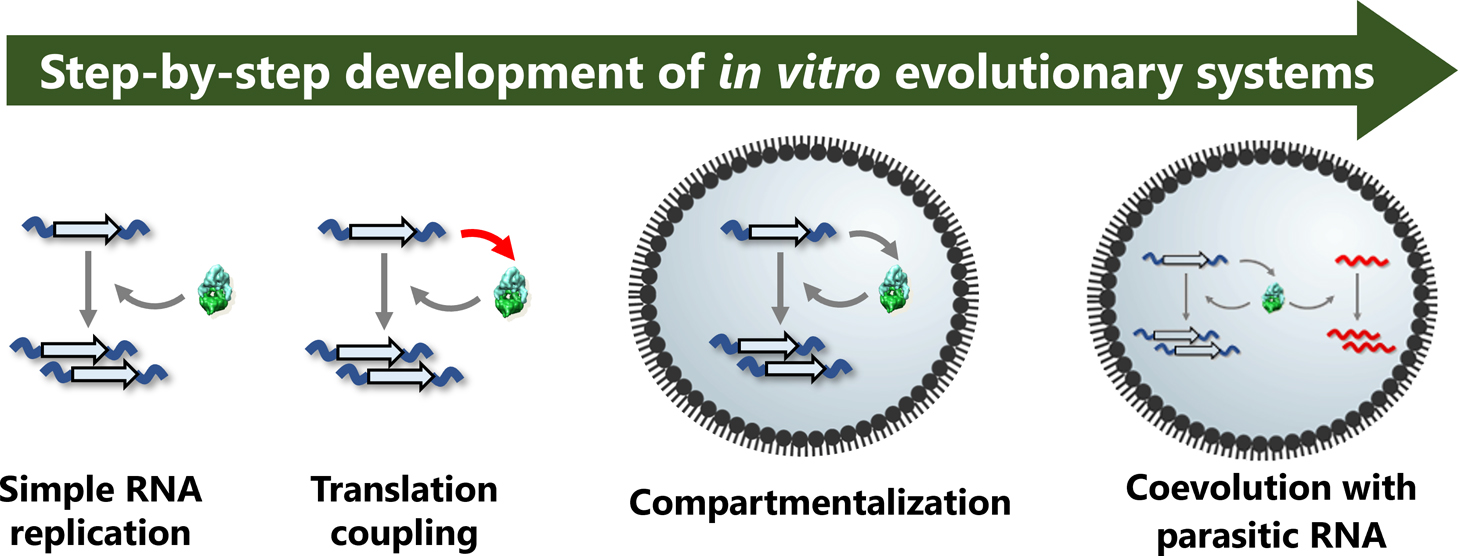- 著者
- Taro Furubayashi Norikazu Ichihashi
- 出版者
- The Biophysical Society of Japan
- 雑誌
- Biophysics and Physicobiology (ISSN:21894779)
- 巻号頁・発行日
- pp.e190005, (Released:2022-02-15)
- 著者
- Taro Furubayashi Norikazu Ichihashi
- 出版者
- The Biophysical Society of Japan
- 雑誌
- Biophysics and Physicobiology (ISSN:21894779)
- 巻号頁・発行日
- vol.19, pp.e190005, 2022 (Released:2022-02-26)
- 参考文献数
- 43
How can evolution assemble lifeless molecules into a complex living organism? The emergent process of biological complexity in the origin of life is a big mystery in biology. In vitro evolution of artificial molecular replication systems offers unique experimental opportunities to probe possible pathways of a simple molecular system approaching a complex life-like system. This review focuses on experimental efforts to examine evolvability of molecules in vitro from the pioneering Spiegelman’s experiment to our latest research on an artificial RNA self-replication system. Genetic translation and compartmentalization are shown to enable sustainable replication and evolution. Latest studies are revealing that coevolution of self-replicating “host replicators” and freeloading “parasitic replicators” is crucial to extend evolvability of a molecular replication system for continuous evolution and emergence of diversity. Intense competition between hosts and parasites would have existed even before the origin of life and contributed to generating complex molecular ecosystems. This review article is an extended version of the Japanese article “An in vitro evolutionary journey of an artificial RNA replication system towards biological complexity” published in SEIBUTSU-BUTSURI Vol.61, p.240–244 (2021).”
